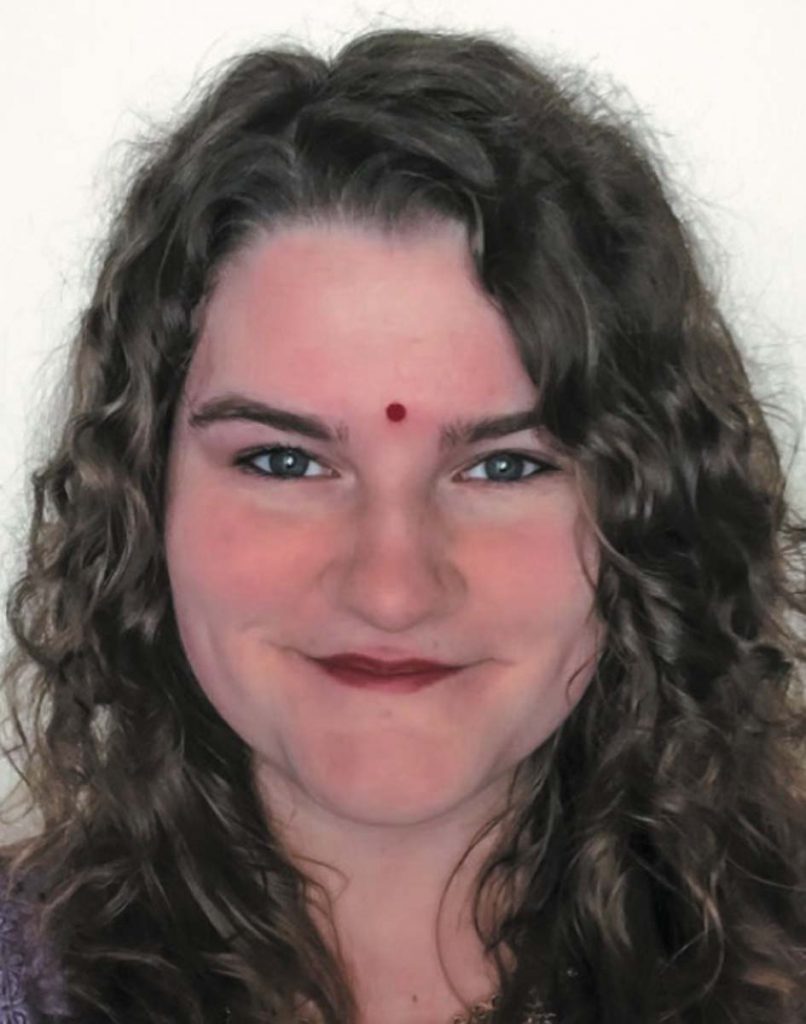A “Spiritual But Not Religious” life is not the
final remedy for our inner aspirations
By Chetana Wilson


I had always thought of myself as spiritual but not religious (SBNR). Growing up, I attended a Lutheran church and was taught gnostic teachings at home by my mother. I did not believe in what the church was preaching, yet I continued to attend with my parents as I was merely a child.
I first heard the term Hindu at age 16. In my light, preliminary research, I found and absorbed many of the aesthetic aspects. For example, seeing Ganesha’s image made me feel good, so I kept photos of Him in my school locker and on the home screen of my cell phone.
At the time, I did not know any Hindus personally, though I had interacted with a Hindu woman online. Her answers to my questions were short and somewhat vague, and she said she did not think conversion was possible. So I stayed away from the term Hindu, but continued to practice meditation, chant mantras, and sing and dance to bhajans. I didn’t know what the words meant, but they sounded beautiful. I had no idea I was engaging in anything considered to be a religious practice.
In March of 2020, at the beginning of the pandemic, I stumbled across the word advaita online. From there I quickly deepened my research. After only a few hours, I knew I was a Hindu and adopted that title. It seemed as though all of my core beliefs and practices—that I had already been doing for several years—were right in front of me!
When I considered myself SBNR, I felt I was free from what I considered the constraints of religion. But I have learned that Hinduism has none of those limits. I am convinced that today’s push towards spirituality without religion, and even towards atheism, comes from a rejection of Abrahamic faiths, since those do not offer the countless options of worship and introspection as found in Hinduism. This authoritative and oft unyielding approach to worship and belief causes many youth to foster a blanket rejection of all religions, and to enter the realm of SBNR. I feel it is important to teach Americans about Hinduism so they can realize that not all systems of belief are as limiting as what they may have grown up with.
I’ve watched talks by Dr. Rajiv Malhotra on his U-Turn theory. He points out that many Westerners have gone to India, obtained spiritual knowledge and returned with the notion that this knowledge can be applied to any lifestyle—that it does not solely belong to Hinduism. This is precisely what I experienced as an SBNR person. I was being fed Hindu knowledge but was not shown its roots. Now that I know the source, I have an immense body of information at my disposal.
When I was SBNR, I had no concrete direction, understanding or way of worship. Hinduism provides all of these in a logical and clear manner. I love being a Hindu, because every practice has meaning. SBNR focuses very much on manifestating material and social wealth for this one lifetime. It has no end goal, such as moksha. Hinduism explains that samsara lays out the foundation for the four goals of life. It includes a multitude of paths and lineages, of yogas and sampradayas.
My SBNR mindset had kept me stuck with a limited understanding, even though it had claimed that religion was what was limiting! It is in Hinduism that I have found my foundation and my path.
Chetana Wilson, 21, is pursuing a master’s degree in Leadership and Policy Studies. She is active in the online Hindu community and wishes to spread awareness of Hindu philosophy. Email: ryewomanrox@gmail.com.


